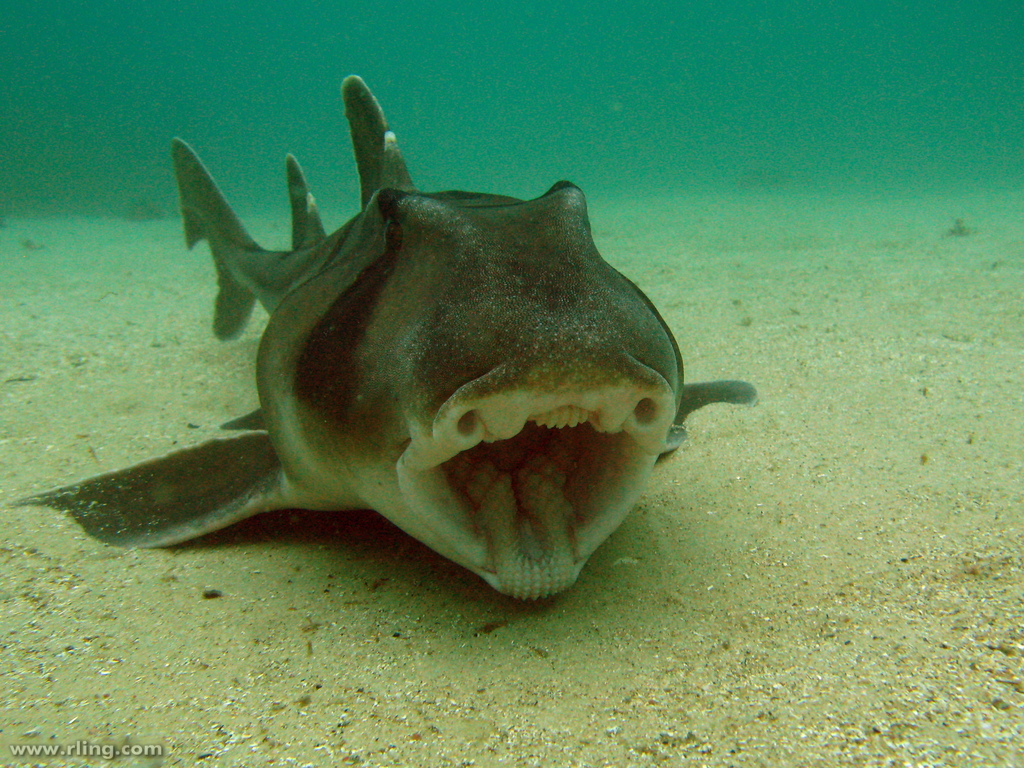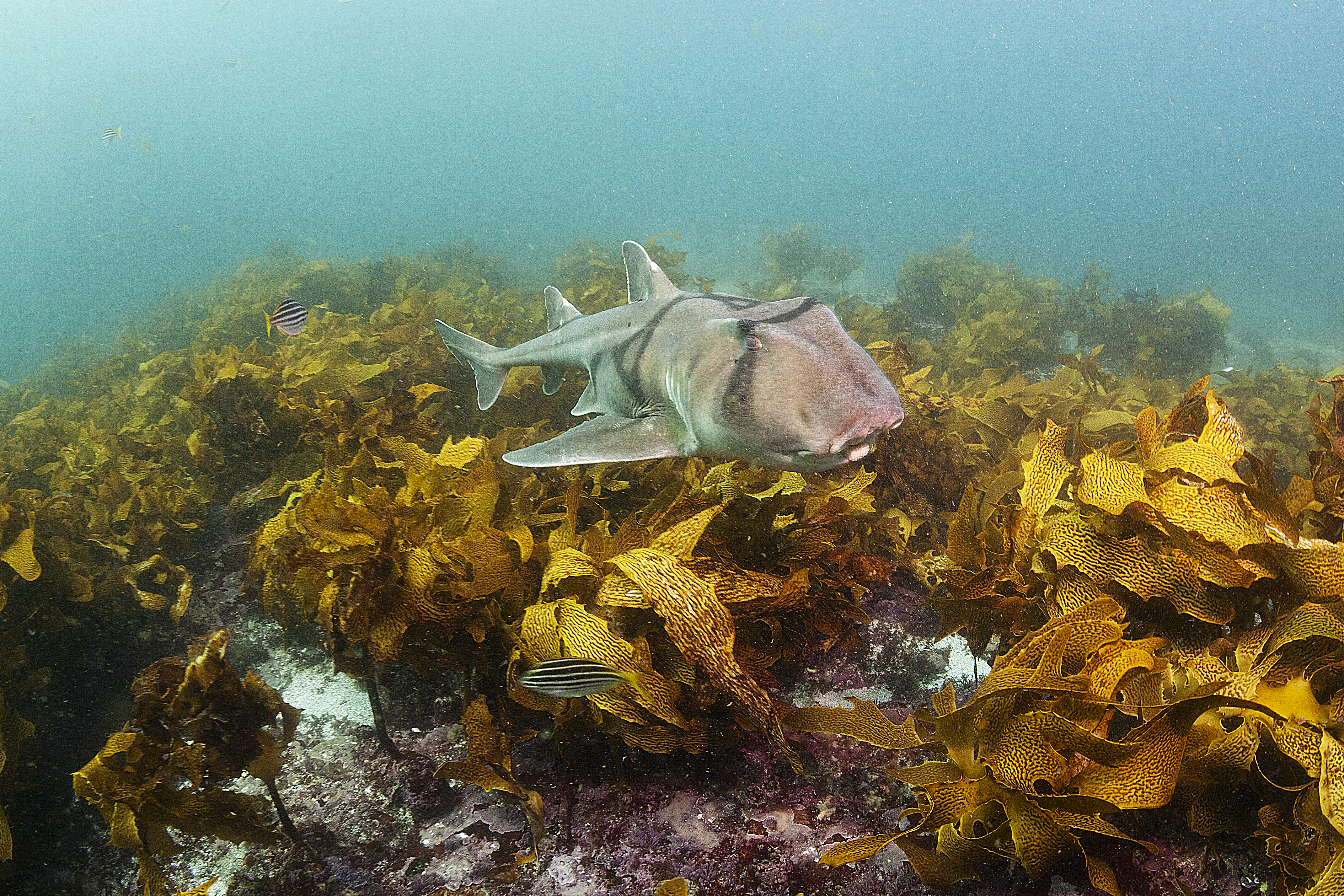JERVIS BAY (Australia)- Port Jackson sharks, those small and friendly looking sharks that often just hang out on the bottom or easily cruise along the reefs. Who would have expected that these guys can travel thousands of kilometers just to mate?
Shark researcher Johann Mourier writes about the research in Jervis Bay, New South Wales (Australia) that he worked on. The BEEF lab from Macquarie University led by Prof Culum Brown has been studying these little mysterious creatures, endemic of Aussie waters, for years now and have investigated their long-term movement patterns using acoustic telemetry.
Large aggregations of sharks
Every winter the team went to Jervis Bay where Port Jackson sharks are forming large aggregations and caught sharks to implant them an acoustic transmitter. When the tagged shark passes in proximity of a receiver its identity is recorded allowing to follow them in time and space. The movements of these littles guys can then be tracked along a huge Australian network of receivers.
“I was fortunate to participate in this project by analysing the data during my post doc at Culum’s lab last year”, writes Mourier on his weblog. “What the team found was surprising and exciting!”
These small benthic sharks do not only come to New South Wales every winter but they were tracked as far as Tasmania, swimming over a thousand kilometers after leaving their mating aggregation in Jervis Bay.
Strong fidelity
Moreover, they not only conducted long distances but they also came back every single year to exactly the same reef in Jervis Bay after their 2,000 km round-trip travel, thus ‘becoming an astonishing migrating species with strong site fidelity and philopatry’, says Mourier. In summary, they forage in southern Australia and move to NSW to reproduce in winter, with males arriving earlier than females at the mating aggregation sites.
 Read more at Mourier’s personal site or the article in a special Issue of Marine and Freshwater Research.
Read more at Mourier’s personal site or the article in a special Issue of Marine and Freshwater Research.
Or read the paper at:
Bass N, Mourier J, Day J, Knott N, Guttridge T, Brown C (2017) Long-term migration patterns and bisexual philopatry in a benthic shark species. Marine and Freshwater Research 68(8): 1414-1421.

